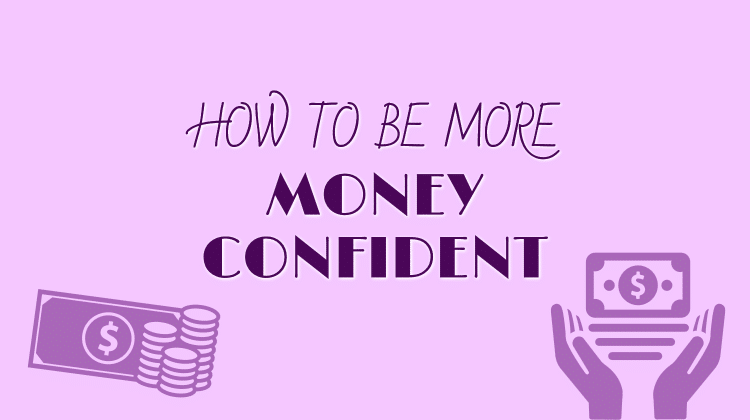
Ever wished you could be more confident about money and all that it entails: not being afraid to ask for more pay if you deserve it or standing your ground when clients try and beat down your prices?
I’ve spent the last few months talking to women in financial careers about their own money knowledge and confidence, and now, I want to bring that to the wider world by sharing my advice on getting confident with money. To that end, here are 12 tips for women to get more money confident:
1. Get Used to Talking about Money
I would love to see conversations about money between women become more natural and commonplace so we can help and learn from each other, rather than hiding it away as though it is a dirty word.
2. Get Used to Asking for Anything
This doesn’t have to mean money at first. Try it by asking your builder to do something additional or better for you, or try getting the waiter’s attention to ask for more maple syrup with your pancakes. Getting comfortable with asking is as important as the money part.
3. Do Your Research
If you’re wondering if you should be earning more or receiving more, yes, looking at job ads may be a good place to start, but be realistic and investigate whether people really are getting that. Also, determine whether they are qualified to a similar, better or lesser level than you if the job is based on a skill set.
4. Have a Conversation
If you need to have a conversation about money, do just that. Have a conversation, and don’t be tempted to relegate it to an email. Doing so just shows me you don’t have the balls and are hiding, which immediately puts you at a disadvantage.
5. Be Honest
It’s okay to say you are embarrassed to talk about money. People do understand and may actually be glad that you’ve mentioned it.
6. Understand Negotiations
Think of negotiations as just that. If you walk in asking for more money, what are you offering them in exchange. What is your proposal? It should always be a two-way street, so be sure of what you are offering. There should be a comparative gain (i.e., compare your value to what they will gain). Once negotiations are done, seal the deal there and then or follow up promptly to confirm things.
7. Be Prepared
Prepare a script or at least a sensible starting point, but also be prepared for the worst. What will you do if they could call your bluff on an empty threat?
8. Check Your Body Language
You’re looking to give an impression of being assertive but not aggressive, so keep an open and engaging stance. A smile goes an awful long way.
9. Choose Your Battles
If you have a great builder who likes to add a little onto your bill, you may let a few things go, but there may come a point when you need to say no and stand up for yourself. Consider where you will draw your line and stick to that.
10. Pre-empt Expectations
Warn people what’s going to happen when you make money decisions, whether that’s clients who need to know you’re raising your fees or teenage children who need to go out and get a part time job rather than relying on you for pocket money. Pre-empt people’s expectations so they are prepared for what you are asking for.
11. Always Consider How You are Being Perceived
If you’re posting your itinerary of partying until 2:00 a.m. on Facebook, don’t be surprised if your boss doesn’t take too kindly to you asking for a pay rise. But even small things count. Leaving at 5:30 on the dot can make it appear as though you are un-invested in some companies, and this may scupper your chances of being taken seriously for more money, a promotion, or even a potential future in that organization. Be noticeable for the right reasons and show your worth. This doesn’t have to mean long hours, but you should demonstrate you have the skills to do the job above you.
12. Have Clarity, Be Clear and to the Point.
If you are asking for something, you need to at least make sure the person actually knows what you are asking for. Don’t beat around the bush, but do be mindful of your manners of course.
About the Author
Faye Watts is no ordinary tax accountant and business advisor. Her background in a creative environment and seven years as a freelancer in the fitness industry, followed by running her own accountancy practice since 2008, means that she has a real-life understanding of the pressures of running and growing a business. As well as her work in tax consultancy and business planning, Faye sits on the advisory boards of a number of organizations.